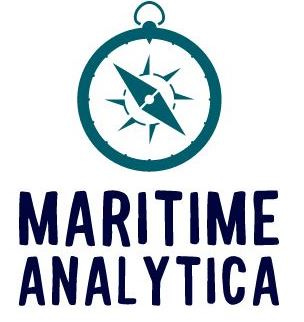🌟 10 Must-Knows from the WTO AI Report: How AI is Shaping and Being Shaped by Global Trade?
🌐 Unveiling AI's Transformative Role in International Trade: Opportunities, Challenges, and Future Directions
🌟Follow us: Website / YouTube / LinkedIn / 🔥Q3 Report: Get It Now! / Survey
🔥Greetings, Maritime Mavericks!
🚢✨ "Rapid advances in AI are expected to reduce trade costs, boost productivity, and reshape economies' comparative advantages" – WTO Report.
As the maritime industry navigates ever-changing tides, AI emerges as the compass guiding us toward greater efficiency, cost savings, and sustainability. From streamlining logistics to redefining global trade patterns, this transformative technology is not just a tool—it’s a strategic advantage. Discover how embracing AI can future-proof your operations and open new frontiers for growth and resilience.
🌎 Stay ahead, stay inspired, stay competitive!
🌟 10 Must-Knows from the Report:
📈 AI as a Trade Enabler: AI reduces trade costs by optimizing logistics, automating customs, and overcoming language barriers, fostering smoother global operations.
👉 Dubai Customs’ iDeclare app allows travelers to pre-declare goods by uploading photos, automatically assigning HS codes and calculating duties, streamlining the customs process.
🌍 Boosting Services Trade: AI enhances digitally delivered services like education and healthcare, expected to see trade growth of nearly 18% by 2040.
👉AI-powered real-time translation tools increased international trade by 10.9% between economies with language barriers, showcasing its transformative potential.
🔍 Data Dependency: AI relies heavily on large datasets, making data governance pivotal to balance innovation with privacy and security.
👉AI-enabled trade platforms process vast data to predict supply chain risks, as seen with pharmaceutical companies using AI to avoid shortages in vaccine production.
⚖️ Regulatory Challenges: Fragmented AI policies across regions risk hindering trade opportunities, especially for developing economies.
👉Divergent AI standards in regional trade agreements have increased costs for small businesses, emphasizing the need for global regulatory alignment.
🌐 AI-Driven Innovation: The adoption of AI encourages demand for ICT infrastructure and specialized tools, reshaping global trade patterns.
👉The global AI chip market, valued at $61.5 billion in 2023, is expected to skyrocket to $621 billion by 2032, driven by AI's expanding applications.



